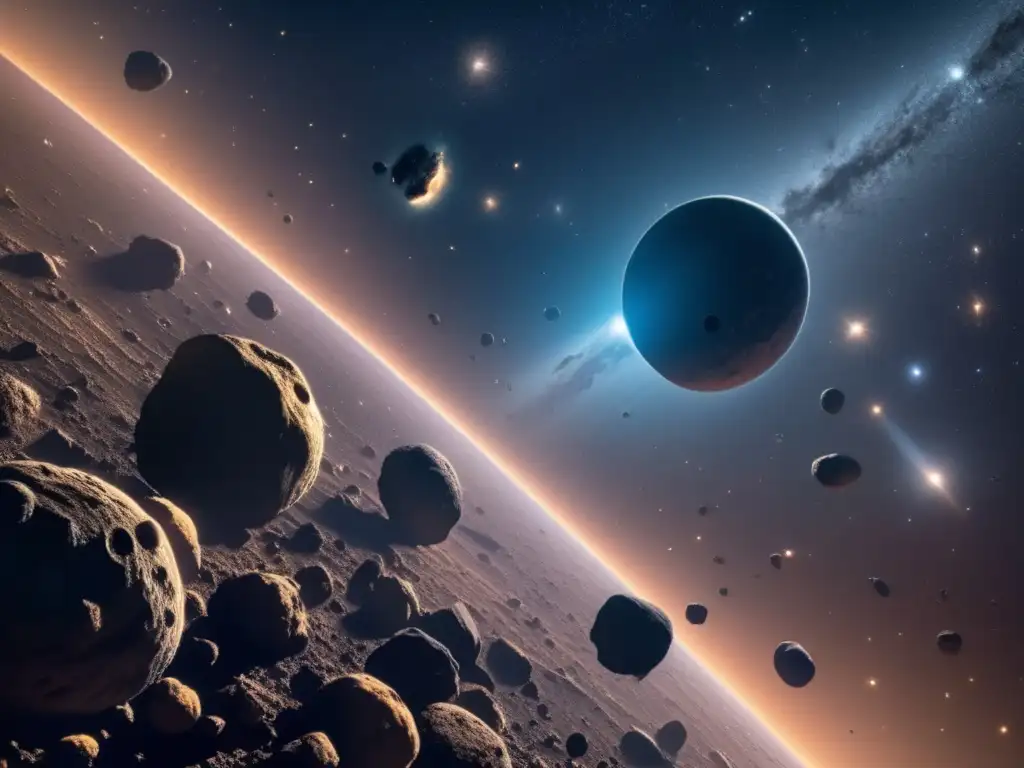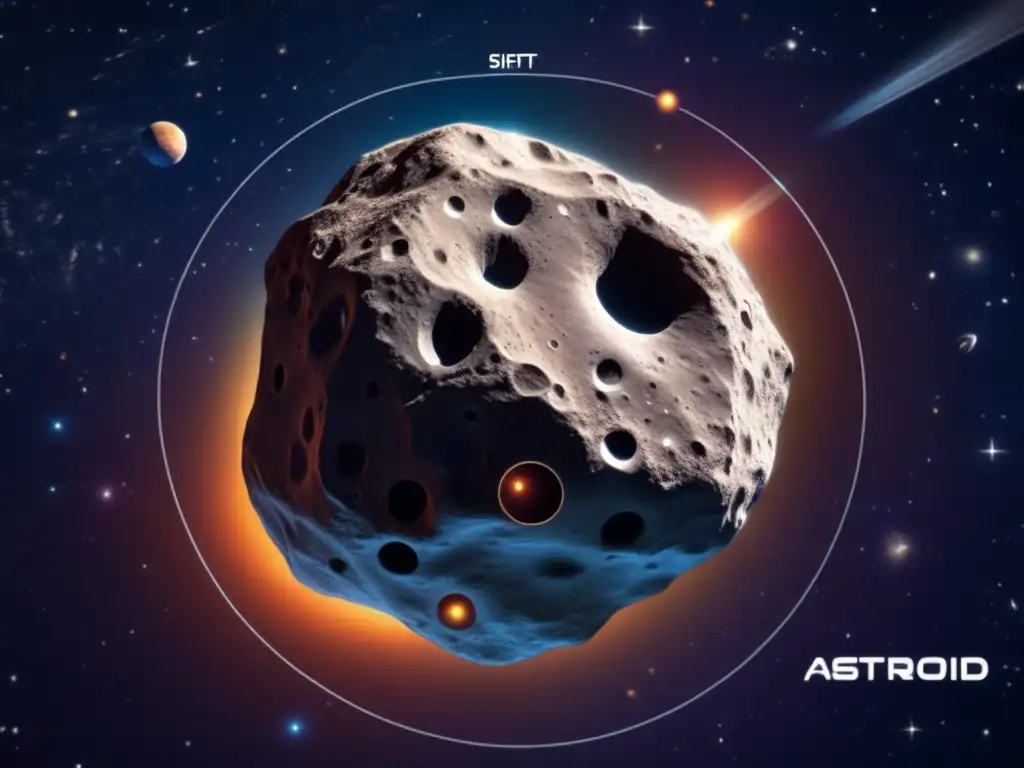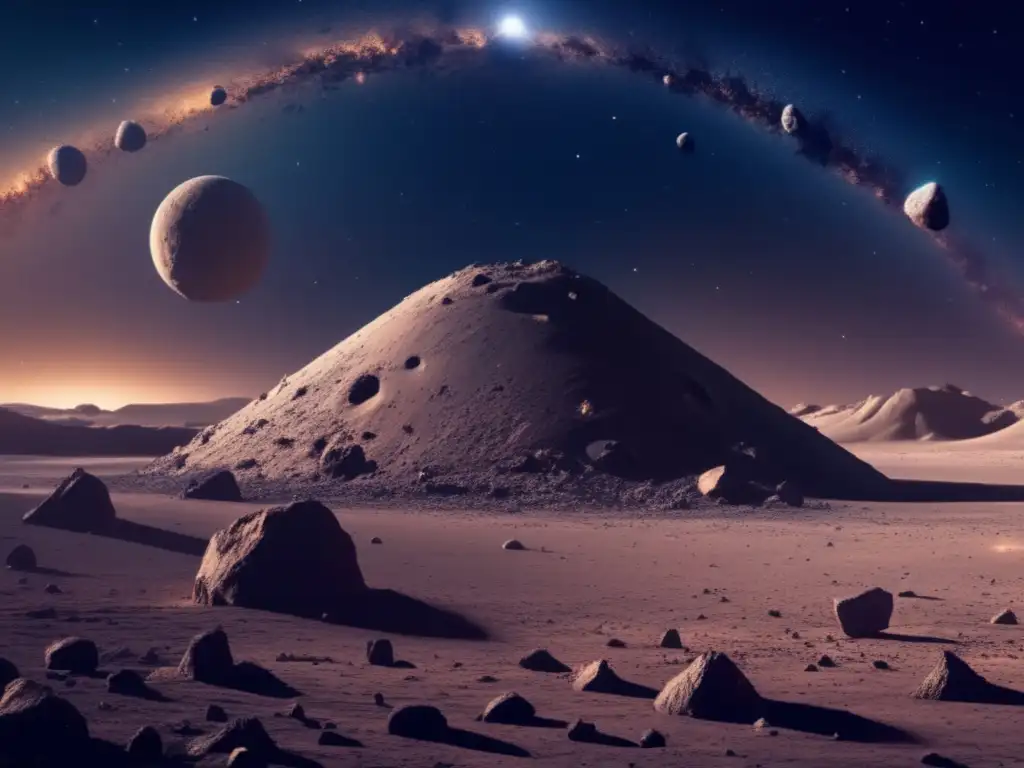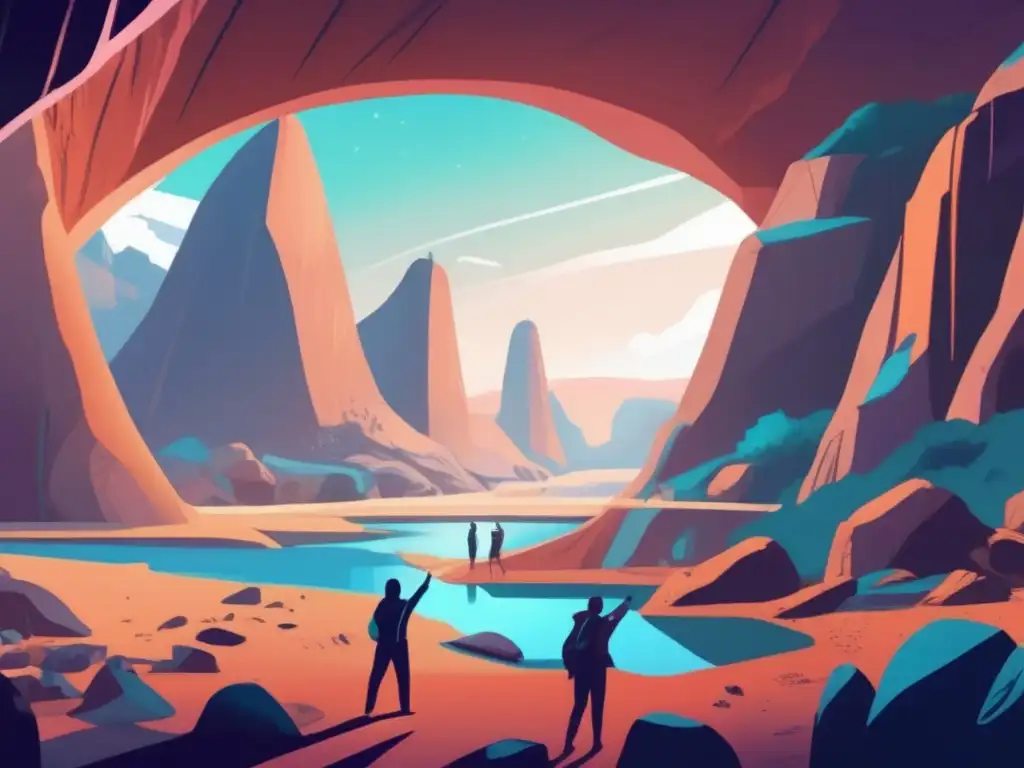Stellar Folklore: Dissecting The Role Of Asteroids In Oral Tradition

Introduction
The skies have always been a source of inspiration for humans throughout history. From ancient times to modern days, people have looked up to the stars and interpreted them as deities, omens, or portentous events. In many cultures, asteroids have played a significant role in oral traditions and served as fascinating subjects of folklore. In this article, we delve into the myths and legends surrounding these celestial bodies and explore their cultural significance.
Asteroid Belt: The Home of Mythical Objects

Ancient Beliefs About Asteroids
Asteroids were known to ancient civilizations as "wandering stars" and were considered a bad omen. In ancient Greek mythology and astronomy, they were called "asteres planetai," which means wandering stars. They were seen as unpredictable forces that could cause harm or destruction. For instance, it was believed that the asteroid Eris caused the Trojan War by stirring up conflicts among the gods. In ancient Rome, the asteroid Ceres was identified with the goddess of agriculture, and her festival, the Cerealia, was celebrated in her honor to ensure good harvests.
Asteroids in Native American Traditions
In Native American traditions, asteroids had spiritual significance. For example, in the Navajo culture, the asteroid Itokawa was believed to be associated with the Holy People, who were responsible for creating the world and bringing harmony to nature. Another asteroid, Ryugu, was seen as a messenger of the spirit world and brought blessings to those who honored it. In the Zuni tradition, the asteroid Chiron was associated with power and healing. It was regarded as a symbol of balance, harmony, and wisdom.
The Cultural Significance of Asteroids

Asteroids in Literature and Art
Asteroids have inspired many authors and artists throughout history. They have appeared in literature as symbols of love, loss, and discovery. One notable example is the French poet Gerard de Nerval, who wrote a poem called "Aurélia" in which he describes the asteroid belt as a mysterious realm of forgotten dreams and lost illusions. In art, the asteroid belt has been depicted in paintings and photographs as a beautiful and awe-inspiring sight. The famous painting "Starry Night" by Vincent van Gogh features a starry sky with a bright asteroid visible on the right side of the canvas.
Asteroids in Science Fiction
Asteroids have also been popular subjects in science fiction. They have been portrayed as sources of valuable resources, potential threats to Earth, or habitats for extraterrestrial life. The classic science fiction novel "The War of the Worlds" by H.G. Wells features an invasion of Earth by Martian tripods that travel on cylinders launched from Mars. The asteroids are used as a means of transportation for the Martians. In the "Star Wars" franchise, the asteroid belt is seen as a hazardous place for spaceships to navigate, as it contains hidden dangers such as space worms and Imperial ships.
FAQs

-
What are asteroids, and where do they come from?
Asteroids are small, rocky, airless bodies that orbit the Sun in the asteroid belt between Mars and Jupiter. Most asteroids are thought to be remnants from the early Solar System, about 4.6 billion years ago, when planets were forming.
-
Why are asteroids interesting to study?
Asteroids can provide clues about the formation and evolution of the Solar System. They also contain valuable resources such as water, metals, and minerals that could be used for future space exploration and colonization.
-
Are asteroids dangerous to Earth?
Some asteroids have the potential to collide with Earth and cause significant damage. However, scientists are actively studying ways to detect and deflect potentially hazardous asteroids before they pose a threat.
-
Can we mine asteroids for resources?
Yes, several companies are working on developing technology to mine asteroids for resources such as water, which could be used to produce fuel for space missions, as well as precious metals and minerals.
-
Are there any asteroids named after famous people?
Yes, several asteroids have been named after famous people, such as Albert Einstein, Isaac Newton, and Vincent van Gogh.
Conclusion
The role of asteroids in oral tradition is fascinating and reveals much about human imagination and cultural beliefs. From ancient times to modern days, they have been seen as powerful entities that can bring both blessings and misfortune. The stories and myths surrounding them continue to inspire writers, artists, and scientists. As we explore our universe and learn more about these cosmic objects, their symbolism and cultural significance will undoubtedly continue to evolve.
Thank you for reading this article on Asteroid Realm. If you have any thoughts or comments, please share them with us in the comment section below. We encourage you to subscribe to our website for more fascinating content related to asteroids and space exploration.
Additional Resources

For more information on asteroids and their cultural significance, please check out these resources:
- NASA's In-Depth Information on Asteroids
- Universe Today's Article on Asteroid Myths and Legends
- Space.com's Infographic on Asteroids in the Solar System
 Prehistoric Cave Art And Asteroids: Interpreting Ancient Symbols
Prehistoric Cave Art And Asteroids: Interpreting Ancient Symbols Asteroid Mythology In Ancient Architecture And Design
Asteroid Mythology In Ancient Architecture And Design Asteroid Myths In Modern Science Fiction: A Continuation Of Ancient Stories
Asteroid Myths In Modern Science Fiction: A Continuation Of Ancient StoriesIf you want to discover more articles similar to Stellar Folklore: Dissecting The Role Of Asteroids In Oral Tradition, you can visit the Asteroid Mythology category.
Leave a Reply

Articulos relacionados: